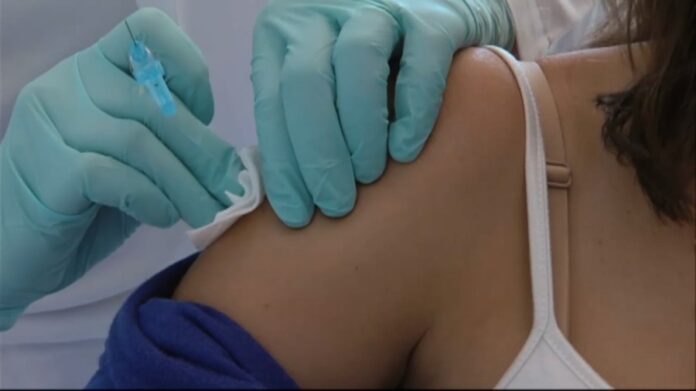
CHARLOTTE, N.C. (QUEEN CITY NEWS) — Centers for Disease Control officials say the incidents of pertussis or “whooping cough” in the U.S. are cyclical, but now, they’re seeing cases in all age groups, but mainly in school-aged-children and infants, and North Carolina is seeing a big jump.
“The whooping cough that we see in infants and young children can cause children to lose their breath. It is just a really, really severe, severe cough,” said Public Health Expert Dr. Karen Landers.
Whooping cases peak every three to five years as the number of susceptible persons in the population increases.
Health officials say the contagious bacterial infection is becoming more prevalent. This time last year, North Carolina only had 83 cases.
Right now, that number sits at 576. There are more than 25,000 cases nationwide compared to 5,404 last year — a 460% spike. It normally affects young school-aged children, but medical providers say adults are also coming in with symptoms.
“Anyone can get it. Anyone could be affected,” said Rowan County Health Department Nursing Director Meredith Littell. “So, when we have our pregnant ladies that are coming in, it’s advised that they get a TDAP (shot) with each pregnancy, and that’s to protect themselves, but also to protect the unborn baby. And it’s also advised for, say, close family members that could be caregivers to the baby to also make sure that they’re up to date with the TDAP.”
Littell says providers encourage everyone to stay up to date with their vaccines like TDAP which includes whooping cough.
“It’s not going to be 100 percent protection, but it’s going to give you more protection than if you don’t get it,” Littell said.
Doctors say staying healthy and vaccinated is not just good for you.
“Your grandparents will thank you if you don’t bring your respiratory virus to them,” Landers said. “Your grandchildren will thank you. Also, the same thing, if your grandchildren are sick or the children year-round, they’ll take them to other places.”
Health authorities say the pandemic measures of hand-washing and social distancing could help reduce the chances of getting the infection.



